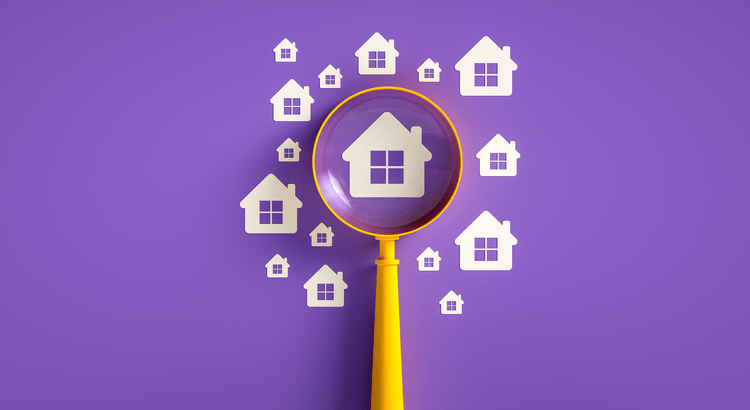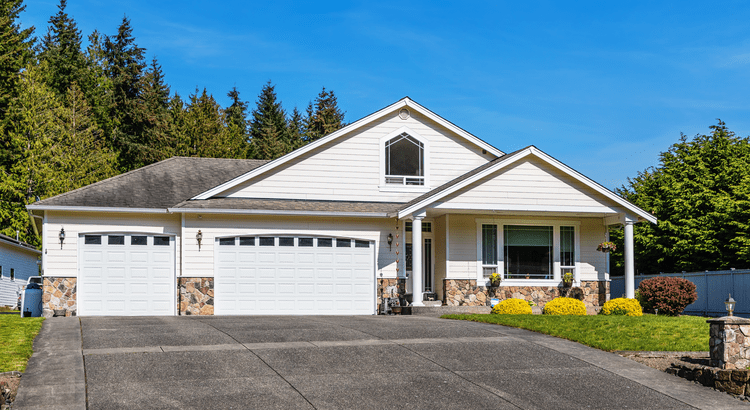Should You Still Expect a Bidding War?

Should You Still Expect a Bidding War? If you’re still worried about having to deal with a bidding war when you buy a home, you may be able to let some of that fear go. While multiple-offer situations haven’t disappeared entirely, they’re not nearly as common as they used to be. In fact, a recent su
Read MoreWhy Most Sellers Hire Real Estate Agents Today

Why Most Sellers Hire Real Estate Agents Today Selling your house without an agent as a “For Sale by Owner” (FSBO) may be something you’ve considered. But you should know that, in today’s shifting market, more homeowners are deciding that’s just not worth the risk. According to the latest data from
Read MoreHomeownership! It's going to be worth it!

How Changing Rates Impact Your Monthly Payment

How Changing Rates Impact Your Monthly Payment Even a small shift in mortgage rates can make a big difference in your monthly payment. Want to stay on top of rate changes and what they mean for your budget? Let’s connect. Watch Now
Read More-

Online Home-Buying Search Terms Recently Hit 2-Year High

Online Home-Buying Search Terms Recently Hit 2-Year High Believe it or not, there are clear signs buyer interest is heating up again. Let’s talk about what’s really going on behind the scenes, and why the housing market might not be as quiet out there as it seems. Buyers Are Looking, and Search Tre
Read MoreThe 3 Things You Risk by Pricing Too High

The 3 Things You Risk by Pricing Too High When selling your house, the price you choose isn’t just a number, it's a strategy. And in today’s market, that strategyneeds to be sharp. The number of homes for sale is climbing. And that means buyers have more choices and can be more selective. If your pr
Read MoreToday’s Tale of Two Housing Markets

Today’s Tale of Two Housing Markets Depending on where you live, the housing market could feel red-hot or strangely quiet right now. The truth is, local markets are starting to move in different directions. In some places, buyers are calling the shots. In others, sellers still hold the power. It’s a
Read MoreWhy Homeownership Is Going To Be Worth It

Why Homeownership Is Going To Be Worth It Life can feel a bit unpredictable these days. What’s happening with inflation? The economy? The housing market? But in the middle of all that uncertainty, there’s one thing a lot of people still crave – a place to call their own. Because when everything else
Read MoreThe Advice First-Time Homebuyers Need To Hear

The Advice First-Time Homebuyers Need To Hear Buying your first home is a big milestone – and the right support is going to make it a whole lot easier. Because while this process might be brand new to you, it’s not new to your agent. They’ve helped plenty of first-time buyers through it. They know w
Read More-

Top 5 Reasons To Hire a Real Estate Agent When You Sell

Top 5 Reasons To Hire a Real Estate Agent When You Sell Some Highlights The right agent doesn’t just list your house – they help you sell smarter, faster, and with fewer surprises. With an agent’s help, you’ll know what’s happening in your local market and how to price your house right. You’ll feel
Read MoreMulti-Generational Homebuying Hit a Record High – Here’s Why

Multi-Generational Homebuying Hit a Record High – Here’s Why Multi-generational living is on the rise. According to the National Association of Realtors (NAR), 17% of homebuyers purchase a home to share with parents, adult children, or extended family. That’s the highest share ever recorded by NAR (
Read More3 Reasons To Buy a Home This Summer

3 Reasons To Buy a Home This Summer Are you thinking about buying a home, but not sure if now’s the right time? A lot of people are waiting and wondering what the market’s going to do next. But here’s something only the savviest buyers realize: This summer might actually be the best time to buy in y
Read MoreThe Big Difference Between a Homeowner’s and a Renter’s Net Worth

The Big Difference Between a Homeowner’s and a Renter’s Net Worth Some Highlights Homeownership is one of the best ways to build wealth in our country and it’s easy to see why. As you pay down your mortgage and as home values rise over time, you gain equity – and that helps grow your net worth. That
Read MoreHome Projects That Add the Most Value

Home Projects That Add the Most Value Some Highlights Whether you’re planning to move soon or not, you want to be strategic about which home projects you take on. Because not all of them will be worth it. Before you decide what upgrades to tackle, talk to an agent who knows what’s in demand in your
Read MoreIs It Better To Rent or Buy a Home?

Is It Better To Rent or Buy a Home? You’ve probably asked yourself lately: Is it even worth trying to buy a home right now? With high home prices and stubborn mortgage rates, renting can seem like the safer choice right now. Or maybe your onlychoice. That’s a very real feeling. And perhaps buying to
Read More-

-

-

Categories
Recent Posts










